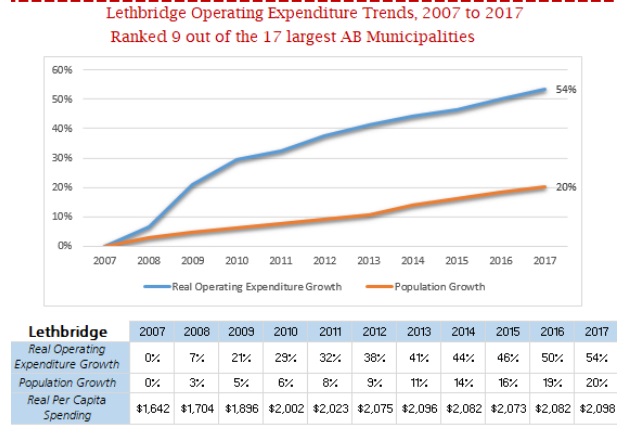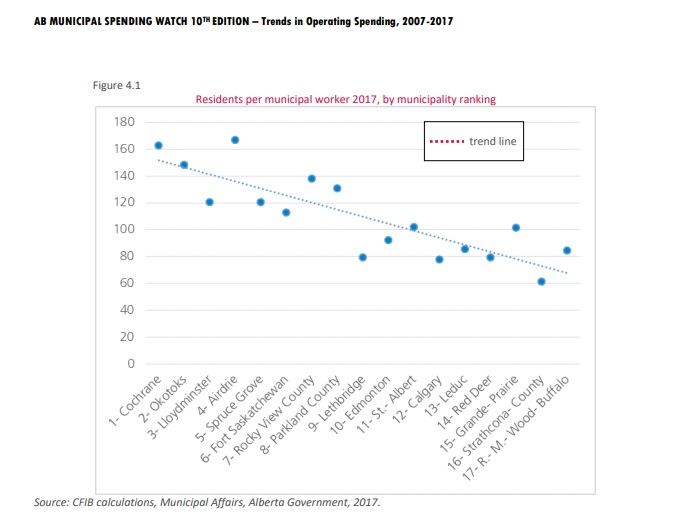“Unsustainable” is the term used by the Canadian Federation of Independent Business (CFIB) to describe Lethbridge’s operational spending over the last 10 years.

The CFIB analyzed the spending trends of Alberta’s 17 largest municipalities over a 10-year period, releasing the findings in its Municipal Spending Watch Report released last week.
Of those 17 communities, Lethbridge floated to the middle of the pack, spending almost double what’s recommended by the CFIB, but still less than cities like Calgary and Edmonton.
“Lethbridge had around $2,400 per resident in municipal spending,” said Aaron Aerts, a western economist with CFIB.
“So, it shows that Lethbridge has performed better than some but there’s a good amount of work still to do.”
Aerts said years of overspending could become a burden for local taxpayers to carry.
“What this means for the average resident is that generally, when you have spending increases, you have to fund those through property tax increases or user fees,” Aerts said.
The report shows that between the years of 2007 and 2017, Lethbridge saw an operational spending growth of almost 54 per cent, compared to a 20 per cent increase in population.

Aerts said the numbers pose a problem as municipalities should “keep spending increases in line with inflation plus population growth.”

Get daily National news
“Obviously as prices go up, and if there are more people to provide services to, then it makes sense to increase spending at that rate,” he said.
“But beyond that, we believe that it will result, inevitably, in significant property tax and user fee growth.”

Aerts said Lethbridge also has a large workforce at the municipal government level, adding the city has one of the highest resident-to-municipal workforce ratios in the province, which eats up a large portion of city administration’s operational budget.
“For every 79 residents of Lethbridge, there was one bureaucratic staff member,” Aerts said.
“That is quite a high ratio in terms of what we’re seeing compared to say, Cochrane, where for every 162 residents, there was one municipal staff.”

Aerts said besides re-assessing the size of the municipal workforce, one other way Lethbridge can lower its spending costs is by ensuring wage growth for those workers stays in line with the private sector.
In a statement provided to Global News on Tuesday, the City of Lethbridge said it is working on re-assessing the operational budget to become more fiscally responsible.
“In recent years, our community has undertaken significant capital investments that have impacted the municipal spending,” the city said. “We are very aware of the challenges facing our community and are working hard to review our overall municipal spending plan.”


Comments